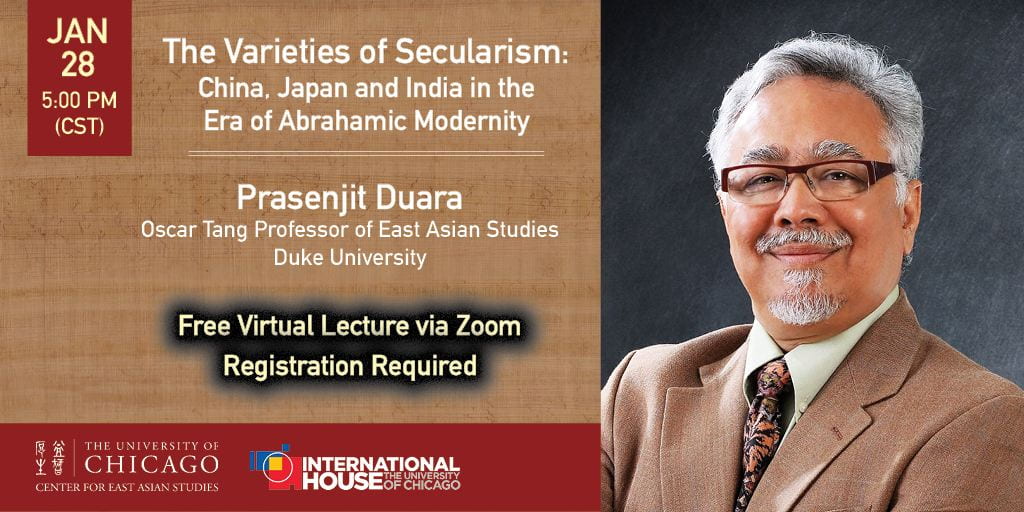Thursday, January 28, 2021
5:00PM-6:00PM
Zoom
Secularisms in different societies have been shaped by complex crossings of older, looser collection of ideas and practices of ‘religion’ and the modern Protestantized conception of religion. Professor Duara develops a comparative frame of reference to discuss the nature of religious accommodation historically in China, India and Japan and Europe particularly with the confessional revolutions of the 16-17th centuries. He argues that the confessional revolutions played a significant role in the emergence of the self/other (saved/damned) binary of nationalism.
The impact of these European developments in the 19th and 20th centuries on Asian societies reveal both the points of commonality and divergences between the four societies. In the final analysis, he argues that 1) we might want to strive for an idea of accommodation of pluralism rather than secularism—as developed in the Western tradition– as a global ideal; and 2) that religions in most of these societies continue to evolve and are responding to new global demands such as environmental sustainability; this will also produce opportunities and challenges in a post-secular world.
Prasenjit Duara is Oscar L. Tang Family Distinguished Professor of East Asian Studies at Duke University. He was born and educated in India and received his PhD in Chinese history from Harvard University.
This event is co-sponsored by International House at the University of Chicago and the Center for East Asian Studies.
